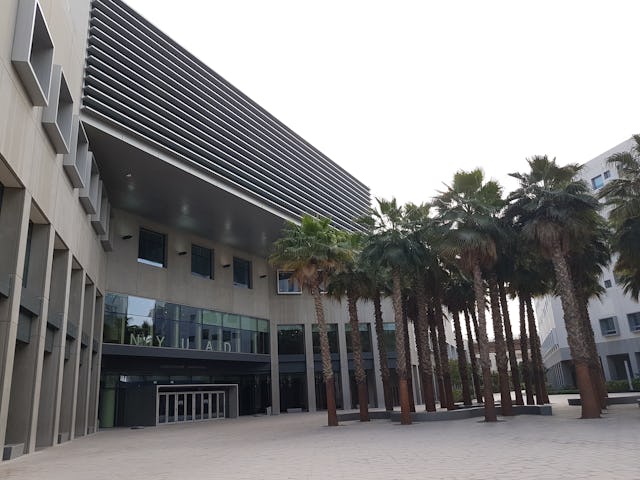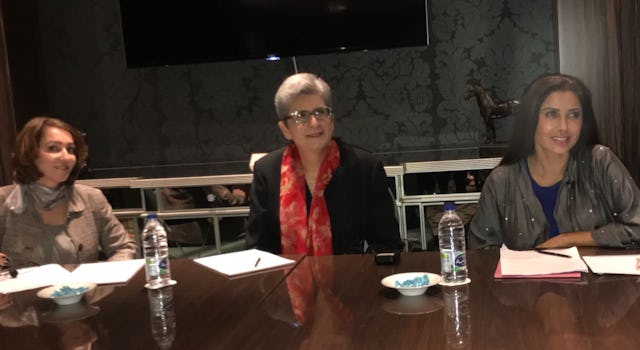Exploring vistas beyond mere tolerance
ABU DHABI, United Arab Emirates — Hoda Mahmoudi, holder of the Baha'i Chair for World Peace at the University of Maryland, recently joined five other international scholars and a number of faith representatives for a critical exploration of the concept of "tolerance" in socially and religiously diverse societies. The venue was the New York University Abu Dhabi (NYUAD) Institute in the UAE.
Titled "Tolerance in the UAE: Histories and Reflections on Religious Tolerance and the Modern Nation-State," the workshop explored how tolerance is deployed and framed in modern states and how that compares with the lived experiences of religious minorities.
"The traditional understanding of tolerance does not offer a solution for the increasingly complex issues of our time," said Prof. Mahmoudi in her lecture at the event. She emphasized the need for new theories and conceptions of how society should be organized and how relationships between people should be conceived for the building of deeper and more solid foundations for peace.
"Globalization seems to be pushing aside old institutions that are unable to respond to a rapidly changing world. A new paradigm is needed to explore the axes that divide and to find common areas of understanding that unite," she explained. "This approach allows for the sharing of common characteristics amongst societies, while also accepting that modernity can take on multiple forms and patterns of institutionalization."
Prof. Mahmoudi also discussed religion's place in the global transformations under way. "The theory of secularization that was popular in Western academic discourse in the 1960s and 1970s-the idea that as societies became more modern, religion would simply disappear-has been rejected. It is clear that religion remains a central element of the lives of many people in modern societies, and that religious diversity is increasing.
"The question is no longer simply the place of religion in the increasingly contested and changing institutional configurations of states and national cultures, but the contribution of religion in the construction and integration of an interconnected global society," she concluded.
NYUAD professor Justin Stearns, who co-organized the event, writes that "the workshop brought together representatives of different religious communities in the UAE with academics who work on the roles religion and religious tolerance play in the modern state.
"The workshop was successful in putting these two distinct communities into intense conversation and in throwing light on the various historical trajectories of religious communities in the UAE. In addition, the comparative examples that were discussed helped contextualize the promise and limitations of the very concept of tolerance itself."
Faith representatives from Muslim, Christian, Jewish, Baha'i, Sikh, and Hindu communities in the United Arab Emirates attended the workshop on 13-14 November 2017. It was one of two events that involved the Baha'i Chair in the UAE that week. The second was a panel on the role of women in creating inclusive societies, held at the Dubai International Financial Center on 18 November.
A video about the Baha'i Chair for World Peace is available here.

